ڈی کالونائیزیشن آف ایجوکیشن: آ مسلم پرسپیکٹیو
اس بات پر ایک وسیع تر اتفاق نظر آتا ہے کہ مسلمان زوال، انحطاط اور اپنی سمت کھونے کے دور سے گزر رہے ہیں۔ تاہم، یہ اتفاق رائے اس کے اسباب تک نہیں پہنچ پاتا۔ مسلمانوں کی کافی تعداد ایسی ہے جو اس بات پر متفق ہیں کہ جمہوریت، سیکولرازم اور سرمایہ داری ہر معاشرے ، بشمول مسلمانوں کے لیے بہتر زندگی کا واحد نسخہ ہے۔ حقیقت یہ ہے کہ مسلمان ایک دوسرے سے ان باتوں پر بحٹ کرنے میں اپنی توانائیاں ضائع کر رہے ہیں جواسلام کا بنیادی حصہ ہی نہیں ہیں۔ انہیں یہ سمجھنے کی ضرورت ہے کہ ان کی آزادی کی طرف پہلا قدم یہ ہے کہ وہ اپنے ذہن سے سوچنا شروع کریں اور اپنی زندگی کے سوالات کو حل کرنے میں اسلام کے موروثی اصولوں کو لاگو کریں۔
Decolonization of Education
A Muslim Perspective*
Prof Dr Asad Zaman
Muslims and their Approaches Today
There is a broad consensus that Muslims have been going through a phase of decline, disintegration, and loss of direction. However, there are sharp disagreements and a wide variety of alternative opinions on the causes of this decline. The rise of the West created by global colonization has led to the domination of Eurocentric worldviews, which glorify the West as the most advanced civilization. Muslims influenced by this worldview argue that democracy, secularism, and capitalism constitute the only recipe for a better life. Another faction sees the conflicts between Islamic ideals and Western social institutions, and attributes Western success to their spectacular progress in science and technology. This group argues that Muslims must acquire Western science and technology while retaining Islamic identities and culture to progress.
In contrast to those who see development as following the leadership of the West, a sizeable group of Muslims considers the final revelation of God to mankind to be of central importance for guiding us out of our current darkness into light. Among this group, there are sharp differences when it comes to details. Some people stress that the failure and decline of Muslims can only be overcome by the renewal of faith and showing a stronger commitment to the obligations of Islam. The adherents of this group confine themselves to preaching faith and emphasizing fundamental religious rituals.
Another group of Muslims focuses on the eradication of heretical practices (bid’aat) and associating partners with Allah (shirk) by resorting to and upholding the concept of jihad. Yet another group thinks that the re-establishment of khilafah (caliphate) would entail the unity and revival of the Muslim ummah. Among these aspiring for khilafah, some advocate achieving it through jihad, others prefer non-violent means to revolutionize the system, and still others prefer using the existing political system.
One group that has always remained part of Muslim societies comprises those who remain concerned with their personal spiritual development and emphasize the purification of heart and soul through mystic philosophies and practices (tasawwuf). There are also groups associated with the idea that service to mankind is the highest form of worship. These humanitarian organizations exert significant influence in modern Muslim society.
In this essay, our contention is that the Muslims have not identified the real battlefield. While each group is dealing with genuine problems facing the ummah, none of them is tackling the root of the problem. Because of our collective failure to identify the challenge, we do not have the tools required to fight this battle. The cause of this failure is the colonization of minds, which leads us to frame the idea of progress in terms defined by the colonizers rather than in terms defined by Islam.
Colonization of Thought in the Subcontinent
In many dimensions, the Indian subcontinent was more advanced than the British at the time of colonization.[1] Relative peace in the Islamic world and continuous warfare in Europe had led to a military revolution, which gave Europeans an advantage on the battlefield.[2] However, sustaining colonial rule required controlling the minds of the masses.[3] The recipe of the colonizers for achieving this goal was the total abolition of the native frameworks of education and the introduction of a system of instructions that only created literate slaves.[4] This system of education started producing a class of persons who were Indian in blood and color but English in taste, opinions, morals, and intellect.[5] By opening the doors of opportunities for this colonized class of locals, the British introduced a culture of elitism and divided the society for good.[6] The elite classes in Pakistan continue to respect, admire, and love the colonizers and have contempt and hatred for their own culture, heritage, and religion.[7] This cognitive colonization is a direct consequence of Western education, given that control of colonies acquired by conquest requires creating admiration and awe in the minds of the colonized.[8]
Muslim Legacy of Knowledge and World Development
Western education is designed to project the glories of Western civilization and suppress or minimize all others. Muslims under the influence of these ideas think that the only way to development and progress lies in following the footsteps of the West in every realm of life. They consider the Qur’an and the teachings of the Holy Prophet Muhammad (SAW) relevant in establishing their private connection with God but do not find them helpful in responding to the complex challenges of modern public life. Modern education glorifies Western intellectual achievements to the exclusion of all others. This created a conflicted worldview among Muslims since our religion gives primacy to the knowledge revealed to mankind by God.[9]
It does not require any emphasis that knowledge lies at the core of Islam; rather, Islam is rooted in knowledge. Islam initiated a transformative revolution in the world by catapulting once-ignorant and backward Bedouins to positions of world leadership. The book ‘Islam and the World: The Rise and Decline of Muslims and its Effect on Mankind’ by Sayyid Abul Hasan Ali Nadwi is the counter-narrative to the Western stance that the world was in darkness when Western knowledge enlightened it.[10] The book reminds us that Muslim civilization was the beacon of light and knowledge for almost one thousand years.
The reconquest of Al-Andulas provided European barbarians access to millions of books from Islamic libraries. Al-Andulas was so advanced in knowledge and development that signs of its progress continue to amaze. The Toledo translation project translated Arabic books into European languages and marked the start of the European Enlightenment and the end of its Dark Ages.[11] Unfortunately, the Europeans could not absorb the essence of knowledge and did not get to the core of its ideals, but the flood of knowledge instigated rational debates. Since the clergy could not respond to these debates, a clear split took place in Christianity.
The conduct of the church in Europe and its relations with the crown caused several violent battles, instability, and destruction to several generations of the West. The people were already distressed and wary of the arm-twisting by the clergy in the name of religion. The rationality that Muslim books brought and the efforts of the church to crush reason led to a rebellion against religion and the development of secularism. Politics and economics detached themselves from morality.
Because faith in God had led to continuous warfare, Enlightenment scholars rejected their intellectual tradition founded on Christianity and sought to rebuild knowledge from scratch based on solid foundations of facts and logic. The famous aphorism “I think, therefore I am” by Descartes, also known as the father of Western philosophy, illustrates this attitude. Starting from a position of complete ignorance to the extent of doubting one’s own existence, one seeks to rebuild knowledge using reasoning alone. The direct evidence of our senses, our beating heart, and a welter of bodily sensations is rejected as a source of knowledge. This shift in theories of knowledge eventually led to logical positivism, which continues to form the philosophical foundation of modern Western education.[12] Emphasis on objective observations of external reality led to a deep understanding of the world, but rejecting the validity of our subjective life-experiences led to a loss of knowledge about the internal world of human beings – our lived reality.
The Challenge is not Unique
It is not the first time the Muslim mind has been awed by a foreign body of knowledge.[13] Muslims faced a similar challenge in the 8th century when translations of Greek knowledge came to Muslim lands, and some notable Muslim scholars were influenced by Greek philosophy. Greek philosophy dealt with concepts and methodological frameworks that had no connection to Islamic source materials. To make room for these ideas, a sect known as Mu’tazilites or rationalists emerged in Baghdad. They equated Greek philosophy with “reason” and argued that reason must take precedence over revelation since we use reason to understand the revelation. The orthodox Muslim approach vigorously and aggressively condemned this movement and advocated avoiding anything to do with Greek philosophy. However, when the movement became so impactful that it even influenced the Muslim khalifa, and the disturbing interpretation of texts gradually started becoming official verdicts, it became necessary for Muslim scholars to engage with this ideology.
To respond to the challenge, Muslim scholars delved into Greek knowledge and developed a specific discipline for validating Islamic stances and rebutting objections to them. This discipline is called Ilm ul Kalam. Among the leading Muslim scholars of that era, Ghazali stood out as the most effective in countering Greek knowledge through his scholarly critique.[14]
Contemporary Muslim scholars have to enter into a similar battle against Western philosophy. There is a need for a new Ilm ul Kalam.[15] It has to be based on the realization that Western education is not serving the purpose of our societies (or humanity at large). This education convinces a person that wealth maximization is the purpose of life. For a young Muslim, acquiring a lucrative job remains the only objective of education. Islamic knowledge is meant to develop the potential for excellence within human beings and transform our lives. The greatest challenge facing the ummah today is to develop an alternative to Western education that is deeply entrenched in Islamic tradition and meets contemporary needs.[16] In the particular context of the subcontinent, Muslim scholars need to rectify the mistake of deliberately abandoning Western knowledge post-1857 and engage with it just like Ghazali and other Muslim scholars engaged with Greek philosophy and Mu’tazilites.
Decolonization of Education
Rejection of God and reliance on observables alone led to the belief that man emerged accidentally by way of evolution, human lives have no higher objectives for which they should aspire, and society is just a cutthroat competition where survival of the fittest is the only moral principle. A Eurocentric education glorifies Western intellectual achievements as being the pinnacle of human civilization. However, Julie Reuben in ‘The Making of the Modern University’ documents how logical positivism eventually led to the exclusion of character building from the curricula of universities.[17] This has led to a situation where the “brightest and the best” educated graduates engage in mass killings without any compunction, as demonstrated to the world in the ongoing genocide in Gaza.[18] A decolonized education would lead students to the recognition that wealth acquired by plunder and genocide of other world civilizations cannot be considered a market of progress.[19] Islamic education would teach students to understand progress as being about human development, not the acquisition of wealth by any means, fair or foul. Within this paradigm, Islamic teachings provide the means to create excellence in conduct and spiritual progress, ideas that are completely missing from modern Western education.[20]
Many Muslim intellectuals who recognized the bankrupt moral foundations of Western epistemology and the damage this does to the Muslim youth sought to rectify the problem in various ways. The dominant paradigm for achieving this goal has been the “Islamization of knowledge” paradigm, which seeks to cleanse Western knowledge of harmful elements while retaining the useful ones.[21] This project, embodied in the International Islamic University in Islamabad and Kuala Lumpur, has not been very successful because they have failed to recognize the hidden moral foundations upon which apparently objective structures of Western knowledge have been built. The alternative is the Ghazali Project, which will be discussed in the next section.
Rooted Revival: A Three-step Way Forward
The successful decolonization of minds requires understanding that the final message of God to mankind is complete and perfect and far superior to any knowledge produced by mankind.[22] Decolonization of education is a mandatory but challenging task. Without this, all efforts at reform and revival are doomed since the toxic Eurocentric worldviews are being planted in the hearts and minds of the vast majority of the Muslim youth by Western educational institutions around the globe. The foremost task towards this end is to rewrite the history of the last 300 years by decolonizing it. The intrinsic Eurocentric biases in the narration of history have convinced generations of Muslims of the superiority of Western thought, tradition, and culture and of the impotence and incompetence of Muslim rulers, scholars, and masses. Unless this defeatist approach is repaired, even the efforts of decolonization will remain colonized. The first step in this direction has already been taken by Sayyid Abul Hasan Ali Nadwi’s book ‘What the World Lost Due to Decline of Islamic Civilization’.[23] This needs follow-up by Muslim historians to document the degeneration in humanity that has accompanied the technological progress of the West.
Muslim academia needs to extensively and consistently discuss the purpose of life, differentiate between useful and useless knowledge, and focus their attention and energies on developing the knowledge that is relevant to and commensurate with their purpose of life. For this purpose, the Al-Ghazali approach looks more pragmatic, which emphasizes that in the process of developing knowledge, one should benefit from the already established knowledge and learn from human experiences. In the words of Recep Santurk, there is no need to build knowledge from zero, but we have to make a “rooted revival” as we already have a knowledge heritage of 1,000 years, and Muslim scholars have already laid the foundations of knowledge in different realms.[24]
So, knowledge has to be constructed on the already available foundations but with the realization of the contemporary context. Muslims cannot solely rely on fiqh rulings from previous books as the circumstances have changed, but they can make use of usool ul fiqh (principles of jurisprudence) to approach contemporary issues. The logical arguments of Ilm ul Kalam remain very powerful, but they need a new articulation. Ontological, cosmological, teleological, Big Bang, fine-tuning, and design are some of the major arguments of today’s world that can effectively be responded to through Islamic interpretations.
Imam Ghazali provided an effective counter to the challenge of Greek philosophy in earlier times. We can break up the task into three steps. The first was rebuilding faith in the fundamentals of Islam, using our minds and hearts, as in his book ‘Al Munqidh min al-Dalalah’. The second step was to analyze and debunk Greek philosophy in ‘Tahafat ul Falasafa’. The final step was ‘Ihya Uloom-id-Deen’, or the revival of religious sciences. The Ghazali Project for today requires rebuilding the structure of human knowledge on Islamic epistemological foundations.[25] This is because knowledge was built on toxic moral foundations by the Enlightenment philosophers for the past few centuries. We have to rebuild this knowledge on sound foundations, and rebuild university education around the core of character development, central to Islam. This is the most important challenge currently facing the ummah.[26]
—————
[*] This manuscript is based on a talk by Professor Dr Asad Zaman, professor at Akhuwat University and former vice chancellor of Pakistan Institute of Development Economics (PIDE), Islamabad. The talk was delivered at the Institute of Policy Studies on February 23, 2024. Dr. Zaman reviewed the paper and graciously added references to other resources where he explained the key themes in his talk.
Prepared by: Moaz Bashir and Muneeba Rasikh
[1] See Ahmad and Zaman (1998): https://ssrn.com/abstract=4580809
[2] The dominant Eurocentric myth is that global conquest by Europeans demonstrates their superiority in strength and intelligence. See http://bit.ly/AZcmeh, ‘Central Myths of Eurocentric History’, which explains that global conquest is a testimonial to the barbarism and cunning of the West, rather than their advanced civilization.
[3] See: The Conquest of Knowledge: http://bit.ly/AZcok
[4] See: Atiyab Sultan, The Mirror and the Lamp: Colonial Educational Reform in 19th Century Punjab – how British educational reforms destroyed an excellent functioning educational system in Punjab: https://bit.ly/4c9S34z
[5] See: https://azprojects.wordpress.com/2018/06/08/the-british-educated-and-civilized-us/
[6] See: Impact of Colonial Heritage on Economic Policy in Pakistan: http://bit.ly/AZimpact
[7] See: A Deep Seated Inferiority Complex: http://bit.ly/AZinfr
[8] See: The Dazzle of Western Knowledge: bit.ly/AZdazzle
[9] See: Islamic Worldview: Central to Islamic Education: bit.ly/iwv4az
[10] See: What the World Lost Due to the Decline of Islamic Civilization: bit.ly/azrdm
[11] See: Theft of History: Western Plagiarists & Islamic Revolutionaries: bit.ly/AZplag
[12] See: The Emergence of Logical Positivism: bit.ly/AZelp
[13] See: The Modern Mu’tazila: bit.ly/AZtmm
[14] See: Kalam & the Hanbalis: Is it Really Relevant Today?: https://bit.ly/4a2BLIM
[15] See: Countering Arguments for Atheism (Urdu): https://bit.ly/49MQlVi
[16] See: The Deep and Difficult Dilemma of Islamic Education: bit.ly/AZddd
[17] See: The Marginalization of Morality in Modern Education: bit.ly/AZmme
[18] See: The Marginalization of Morality: https://bit.ly/3IROLFX
[19] See: Progress Under Western Leadership?: bit.ly/AZcol4
[20] See: Build Character to Build Nations: https://bit.ly/3VbBVcI
[21] See: The Islamization of Knowledge: bit.ly/cie1iok
[22] See: Understanding Colonization and Decolonization: bit.ly/AZcol1
[23] See: What the World Lost Due to Decline of Islamic Civilization: bit.ly/azrdm
[24] Recep Senturk’s Lectures on Decolonizing the Social Sciences: bit.ly/3v9FV32
[25] See: Central Ideas of the Ghazali Project: bit.ly/Ghazali1
[26] See: How to Launch an Islamic Revival?: Bit.ly/azlir

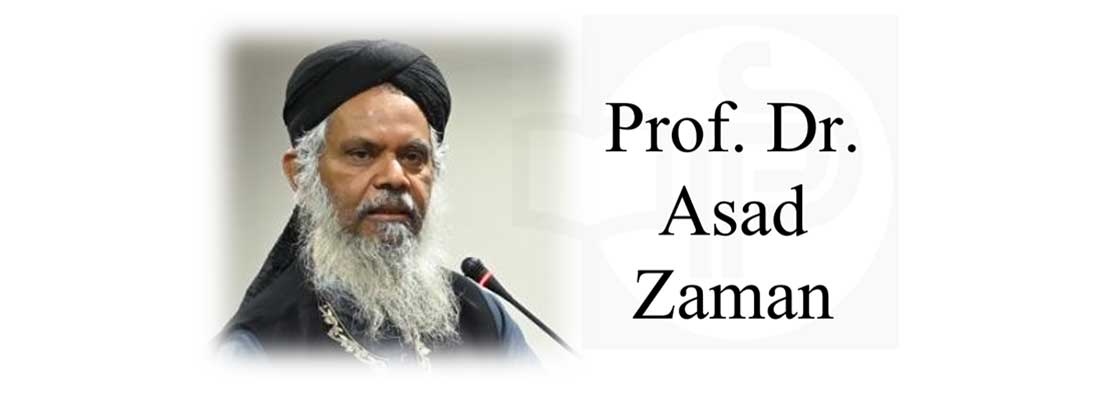


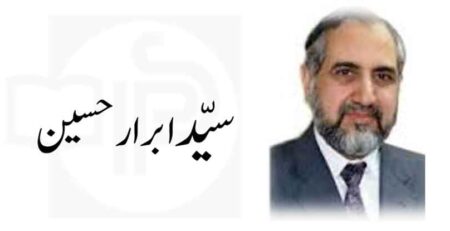
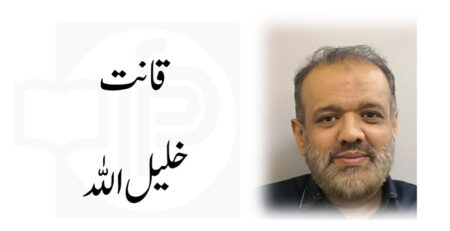
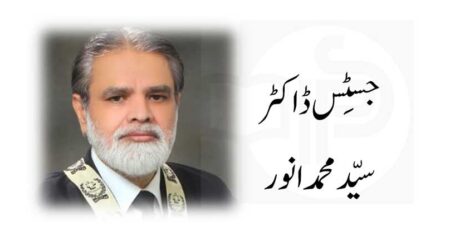
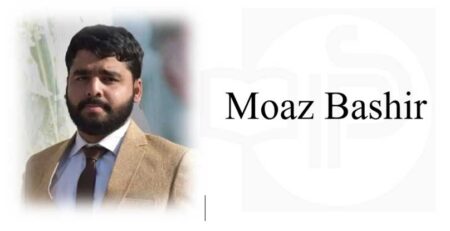

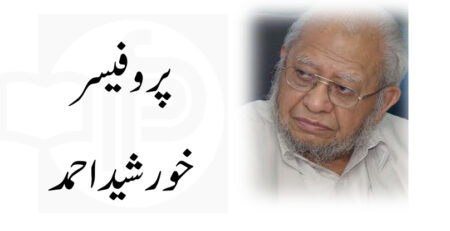
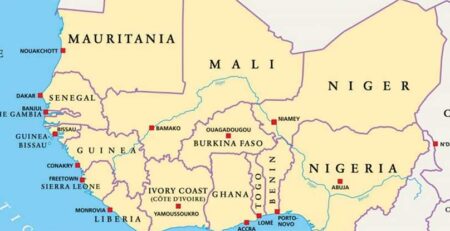
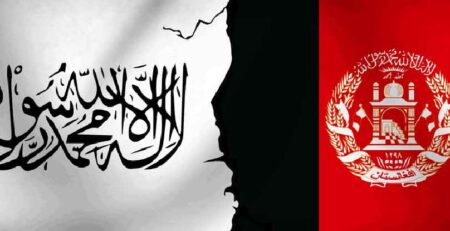
جواب دیں